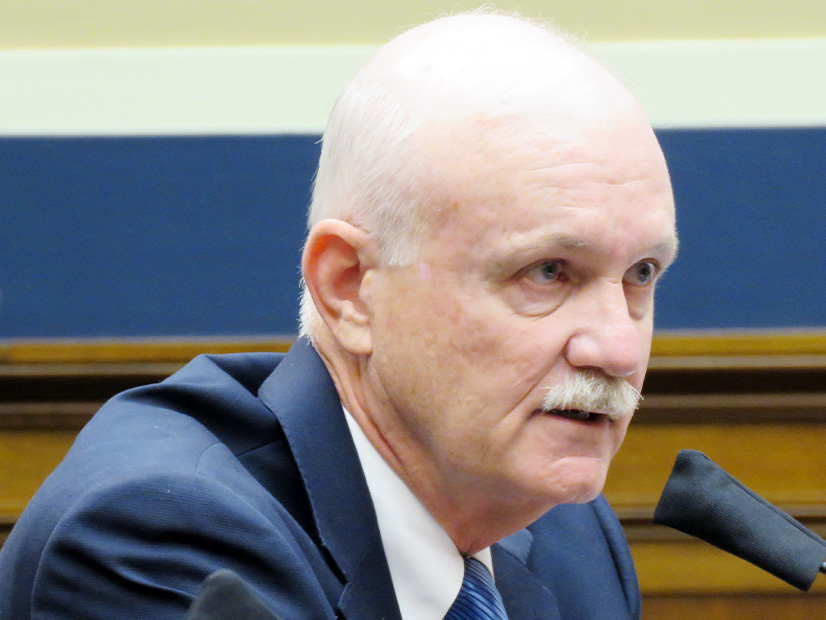
p.p1 {margin: 0.0px 0.0px 0.0px 0.0px; font: 11.0px ‘Helvetica Neue’; color: #000000}
ROCKPORT, Maine — FERC’s Notice of Proposed Rulemaking on transmission planning is narrowly focused on projects driven by public policy and emphasizes flexibility for states, Commissioner Mark Christie told the NEPOOL Participants Committee at its summer meeting in Maine last week.
Those factors made him enthusiastic about the proposal, which he called a “product of compromise” among members of the commission that has “creativity and flexibility absolutely written in.”
Released in April, the NOPR would direct transmission providers to revise their planning processes to identify infrastructure needs on a long-term, forward-looking basis and propose a list of benefits on which they would base their selections of proposed projects to meet those needs. (See FERC Issues 1st Proposal out of Transmission Proceeding.)
“This particular, specific category … of public policy-driven projects are being driven largely by state policies. So state regulators should be at the forefront of deciding what should be the criteria for these projects, the benefits that get used in evaluation” and the cost allocation, Christie said. “I don’t know as much as you do about what goes on in Massachusetts, Maine or Vermont.”
That’s not to argue that FERC shouldn’t play a role in transmission planning, Christie said.
“We have a duty. I’m not saying that FERC doesn’t have a role. But I think when we get into something like planning for public policy projects … that we ought to defer and be respectful of what you all know more than we do.”
The proposal’s flexibility expands to cost allocation within RTOs, he said.
“That flexibility is there for large RTOs … to have cost allocation that can be granular enough to meet the needs not only of different RTOs, but different subsections within RTOs.”
Christie also emphasized that the proposed rulemaking is light on mandates, with only a long-term planning process required.
“Yes, there’s a lot of stuff listed in there,” he said. “But it’s not mandated. If the states say, ‘Thank you very much, FERC, but we don’t want to use these,’ the states can do that.”
Other PC Actions
In addition to hearing from ISO-NE and state leaders, the Participants Committee approved:
- tariff revisions recommended by the Markets Committee to allow storage resources that inject energy into the grid but do not receive energy from it to register and operate as a continuous storage facility;
- changes to tariff Schedules 22 (Standard Large Generator Interconnection Procedures), 23 (Standard Small Generator Interconnection Procedures) and 25 (Standard Elective Transmission Upgrade Interconnection Procedures) to identify that all new distribution-connected generation should proceed through the state interconnection process, as recommended by the Transmission Committee;
- changes to Schedule 18 (Standard Large Generator Interconnection Procedures) and the incorporation of a new Attachment Q in response to FERC Order 881’s directive to incorporate the use of ambient-adjusted ratings for transmission lines, as recommended by the TC;
- changes to Operating Procedure No. 22 (Disturbance Monitoring Requirements), including general updates, the listing of an additional facility in confidential Appendices A and B, and the addition of Appendix C (New England PMU Registration), as recommended by the Reliability Committee; and
- changes to section 3.2 of tariff Attachment D to meet mandatory cybersecurity reporting requirements and section I.2.2 to modify confidentiality restrictions when the RTO is reporting cybersecurity incidents and events to certain federal agencies, as recommended by the MC.


